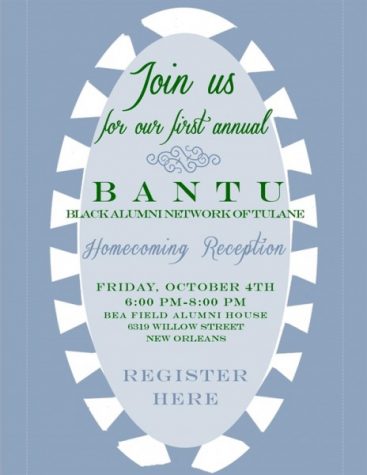OMA Alumni Breakfast connects Tulanians of color
November 14, 2018
“There was this alumni man … one of the busiest black men on campus,” Anfernee “Bubba” Murray said. “He was on three different positions, he had a part-time job, a campus job and he was also trying to be a student … He had a little side hustle by cutting hair. He would cut hair on his floor up until three o’clock in the morning, because it was such a cultural thing for us to do and to really bond and stay connected with the campus.”
This is not the reality for many students at Tulane, but for alumni of color who once walked these hallowed halls, this daily grind was their reality. Stories like these were shared over hot food and coffee this Homecoming weekend.
In an effort to connect students of color to Tulane alumni who understand their unique positionality on Tulane’s predominantly white campus, the Office of Multicultural Affairs put on their annual Black Alumni Network of Tulane University (BANTU) Networking Breakfast last Saturday. This year 13 Tulane alumni, an FBI attorney, business owners and physicians attended the breakfast to speak to students about their experiences as members of the Tulane community.
Murray, senior and member of the 2018 Homecoming Court, attended the breakfast and said engaging with the alumni helped contextualize his own activism at Tulane. As the Co-Convener of Color for Students Organizing Against Racism, Murray said much of his work centers on the history of anti-racism at Tulane and the legacy of activists of color that came before him.
“I see myself as being part of the legacy that came from that and going to the alumni breakfast, I could actually see it,” Murray said. “That being a student of color and, more importantly, being a black student of color on campus, I could see the people who came before me and see what they also went through.”
BANTU stands as one of the primary alumni networks for people of color at Tulane and has a long history of connecting current students with successful alumni. These members include alumni who were involved with historic activism at Tulane like the anti-apartheid struggle, the Afro-American Student Congress and anti-racist efforts in the 1990s.
For Murray, sharing space with the alumni who have had similar experiences with racism, microaggressions and adversity at Tulane and succeeded in spite of them gives him hope for the future.
“Because they had such a good unified community that they had built amongst each other, that’s what helped them survive and it really helped me appreciate my own community I built and found at Tulane, where I feel like I’m doing the right thing,” Murray said.









Leave a Comment